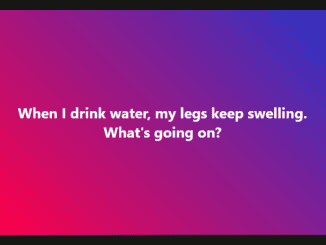On the surface, people who are labeled as perfectionists or relentless hard workers might appear to have it all together. But what if those qualities are masking something deeper? High-functioning anxiety, though not formally recognized as a diagnosis, is a reality for many individuals who excel outwardly while battling constant inner turmoil.
Let’s explore what high-functioning anxiety is, the telltale signs, and how to manage it effectively before it leads to burnout or other serious mental health issues.

What Is High-Functioning Anxiety?
High-functioning anxiety is often described as the unseen struggle behind success. While individuals with this condition are typically perceived as high-achievers or reliable perfectionists, their outward productivity comes at the cost of internal stress.
According to Dr. Neha Chaudry, a psychiatrist, those with high-functioning anxiety often deal with symptoms such as restlessness, excessive worrying, trouble sleeping, and fatigue. What sets this condition apart is the outward appearance of competence and composure, which masks the inner anxiety.
Dr. Michael Louwers further explains:
“The same personality traits that drive individuals to perform at the highest level often fuel the symptoms of anxiety. It starts with good intentions like goal-setting and rigorous planning, but unrealistic expectations can lead to constant worry and procrastination.”
This hidden battle often goes unnoticed, both by those who experience it and the people around them, making awareness and intervention crucial.
Eight Common Signs of High-Functioning Anxiety
If you’re wondering whether high-functioning anxiety resonates with you or someone you know, here are eight key signs to look out for:
1. Overworking Without Taking Breaks
Do you find yourself unable to rest until a task is perfect? Overworking and neglecting downtime are hallmarks of high-functioning anxiety. This relentless drive often leads to burnout.
2. Difficulty Slowing Down or Taking Days Off
People with high-functioning anxiety may feel guilty for stepping away from work or taking a day to relax. Their identity can become tied to their productivity, making it hard to justify rest.
3. Guilt Over Minor Setbacks
A small mistake or missed deadline might spiral into feelings of shame or inadequacy. High-functioning anxiety amplifies the significance of these setbacks, creating a cycle of negative self-perception.
4. Resistance to Delegating Tasks
If you feel the need to control every detail and struggle to trust others with responsibilities, this could be a sign of high-functioning anxiety. Micromanaging often stems from fear of failure or being perceived as incompetent.
5. Irritability and Sensitivity
Even minor inconveniences or changes in routine can trigger frustration. This heightened irritability is often a reaction to the pressure of maintaining high standards.
6. Negative Self-Talk
Your inner dialogue may be overly critical, focusing on perceived flaws or shortcomings. This self-imposed pressure can fuel anxiety and diminish self-esteem.
7. Micromanaging Others
Taking control of every aspect of a project or relationship may seem like a way to ensure success, but it often signals an underlying fear of losing control.
8. Trouble Sleeping
Racing thoughts and constant worrying can make it difficult to fall or stay asleep. Chronic sleep deprivation further exacerbates feelings of anxiety and stress.
The Link Between High-Functioning Anxiety and Burnout
Many of these symptoms overlap with signs of burnout—a state of physical, emotional, and mental exhaustion caused by prolonged stress. It’s no coincidence. People with high-functioning anxiety often push themselves beyond their limits, increasing the risk of burnout.
The relentless pursuit of perfection and fear of failure create a cycle of overwork and self-criticism, leaving little room for recovery.

It’s common in ‘high achievers’. (Getty Stock)
How to Manage High-Functioning Anxiety
Addressing high-functioning anxiety is essential to avoid long-term mental and physical health issues. While seeking professional help is important, there are also steps you can take daily to reduce anxiety and improve your well-being.
1. Practice Self-Compassion
Give yourself grace when things don’t go as planned. Remind yourself that perfection isn’t achievable and that mistakes are part of growth.
2. Take Breaks Regularly
Schedule breaks throughout your day, even if they’re brief. Use this time to step away from work, go for a walk, or engage in a relaxing activity.
3. Practice Diaphragmatic Breathing
Deep breathing exercises can help calm your nervous system. Try this method: inhale for four seconds, hold for four seconds, and exhale for four seconds. Repeat as needed to reduce stress.
4. Fuel Your Brain with Nutrition
A healthy diet can support your mental health. Include foods rich in omega-3 fatty acids, Vitamin D, B12, and magnesium to improve brain function and reduce anxiety.
5. Set Aside “Me Time”
Reserve at least 30 minutes a day to do something you love. Whether it’s calling a friend, reading, or listening to music, this time can help you recharge.
6. Learn to Delegate and Say No
Trusting others with tasks and setting boundaries are vital skills for reducing your workload. Recognize that taking on too much can harm your health and productivity.
The Role of Professional Help
While self-care strategies are important, sometimes managing high-functioning anxiety requires professional support. Options include:
- Talk Therapy: Cognitive-behavioral therapy (CBT) can help you identify and change patterns of negative thinking.
- Medication: In some cases, doctors may prescribe medication to manage symptoms of anxiety.
- Combining Both: Many people benefit from a combination of therapy and medication for a comprehensive approach to treatment.
Dr. Judith Joseph emphasizes the importance of early intervention:
“If we wait until these people lose their functioning, we could be too late. Many of them burn out, develop clinical depression or anxiety, abuse substances, or face medical problems if untreated.”
Why Early Recognition Matters
High-functioning anxiety can often go unnoticed because of its outward appearance of success and productivity. However, ignoring the signs can lead to serious consequences, including chronic anxiety, depression, or even physical health issues.
By recognizing the symptoms early and taking proactive steps, you can maintain both your mental health and your high standards of achievement—without sacrificing your well-being.
Conclusion: It’s Okay to Take a Step Back
High-functioning anxiety is a complex and often misunderstood condition. While it may drive productivity and success, it comes with a significant emotional toll. Recognizing the signs and seeking support can help you find balance, enabling you to thrive without overwhelming stress.
Remember, you’re more than your accomplishments. By prioritizing self-care and setting realistic expectations, you can reclaim control over your mental health and create a more sustainable path to success.


